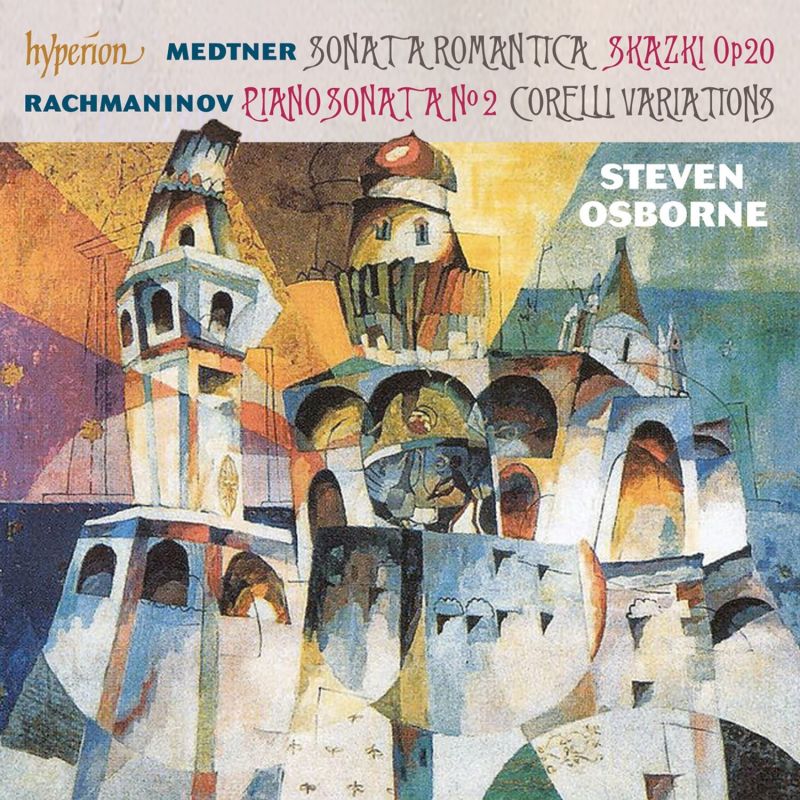MEDTNER Sonata Romantica RACHMANINOV Piano Sonata No 2
View record and artist detailsRecord and Artist Details
Composer or Director: Sergey Rachmaninov, Nikolay Karlovich Medtner
Genre:
Instrumental
Label: Hyperion
Magazine Review Date: 10/2014
Media Format: CD or Download
Media Runtime: 72
Mastering:
DDD
Catalogue Number: CDA67936

Tracks:
| Composition | Artist Credit |
|---|---|
| Skazki |
Nikolay Karlovich Medtner, Composer
Nikolay Karlovich Medtner, Composer Steven Osborne, Piano |
| Sonata romantica |
Nikolay Karlovich Medtner, Composer
Nikolay Karlovich Medtner, Composer Steven Osborne, Piano |
| Variations on a theme of Corelli |
Sergey Rachmaninov, Composer
Sergey Rachmaninov, Composer Steven Osborne, Piano |
| Sonata for Piano No. 2 |
Sergey Rachmaninov, Composer
Sergey Rachmaninov, Composer Steven Osborne, Piano |
Author: Harriet Smith
In the two Skazki, Osborne absolutely nails the Rachmaninovian impulse of the first, and is more unbuttoned than Demidenko (at least until the climax) and more virtuoso than Hamish Milne. In the second, both Milne and Osborne point up its deep disquiet; the composer, primitively recorded, is by comparison less menacing. Osborne is equally at home in the Sonata romantica, a work completely at odds with its time, having been written in 1930. This is a reading that is taut, highly dramatic and virtuoso without being showy. Hamelin is perhaps a degree more insouciant in the playful finale but both readings are stunning.
It’s good to have a new recording of the Corelli Variations too. Compared to Pletnev, Osborne is less interventionist but, as with his recording of the Preludes (6/09), virtuosity is in plentiful supply when need be: he just doesn’t shout about it.
So what of the Second Sonata? This is Osborne’s own conflation of Rachmaninov’s two versions plus some borrowings from Horowitz’s composer-sanctioned version. Osborne justifies it as ‘a natural extension of the interpretative process’. So, does it convince? In a word, yes. What comes across most winningly is the ebb and flow of the work: the more inward passages are allowed to breathe; the extrovert ones are absolutely fiery. It’s not a work that could ever be summed up by a single interpretation: Horowitz is of course essential; so too, I would argue, is Kocsis. And the list could go on. But this is another terrific addition to the shelves, and if it helps the continuing rediscovery of Medtner, so much the better.
Discover the world's largest classical music catalogue with Presto Music.

Gramophone Digital Club
- Digital Edition
- Digital Archive
- Reviews Database
- Full website access
From £8.75 / month
Subscribe
Gramophone Full Club
- Print Edition
- Digital Edition
- Digital Archive
- Reviews Database
- Full website access
From £11.00 / month
Subscribe
If you are a library, university or other organisation that would be interested in an institutional subscription to Gramophone please click here for further information.




